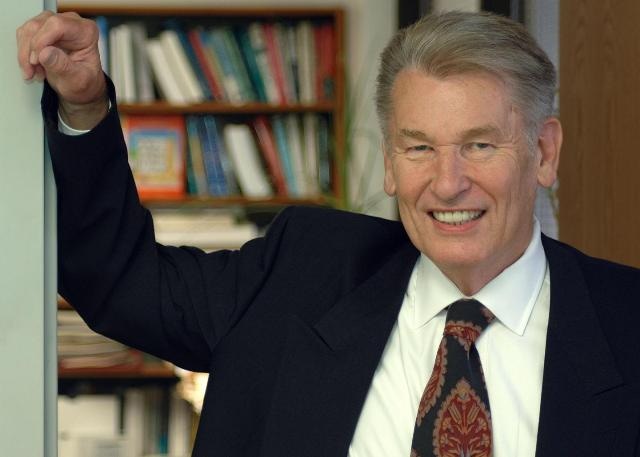May 18 2016
A University of Texas at Arlington engineer is working with the Texas A&M Transportation Institute to assess whether scanning lasers can accurately measure microtexture of aggregates, which are used in asphalt and concrete mixtures.
 Roger Walker, a professor of computer science and engineering, is leading a project that will determine whether scanning lasers can measure microtexture of aggregates, which are used in asphalt and concrete mixtures. (CREDIT: UT Arlington)
Roger Walker, a professor of computer science and engineering, is leading a project that will determine whether scanning lasers can measure microtexture of aggregates, which are used in asphalt and concrete mixtures. (CREDIT: UT Arlington)
Roger Walker, a professor of computer science and engineering, is leading the two-year, $671,011 project, which is funded through the Texas Department of Transportation. The agency currently uses camera-based systems to assess aggregate characteristics.
"These lasers will enable TxDOT to more accurately measure the microtexture of the aggregates," Walker said. "The laser system also will measure aggregate shape and angularity, offering important insights into which materials and mixes work best on Texas roads. This could ultimately affect sustainability, cost and safety."
Walker's project will determine the viability of replacing the current camera system with lasers. The data generated in the study will be crucial for the development of new adhesive systems that make binding asphalt and concrete better and longer lasting.
Hong Jiang, chair and Nedderman professor of the Computer Science and Engineering Department, said Walker's work is representative of how UTA is advancing sustainable urban communities and data-driven discovery under the Strategic Plan.
"Dr. Walker's collaboration with TxDOT uses reliable data to make long-term decisions on our roads," Jiang said. "This research could lead to a much more efficient and less costly way in which to test pavement." UTA's collaboration with TxDOT is extensive. The University has been awarded more than $19 million in TxDOT contracts research grants during the last two-plus decades.
Anand Puppala, associate dean of research in the College of Engineering and civil engineering professor; Sahadat Hossain, civil engineering professor; Stefan Romanoschi, civil engineering associate professor; Mohammad Najafi, civil engineering professor in practice; Stephen Mattingly, civil engineering associate professor; Siamek Ardekani, civil engineering professor; and Xinbao Yu, civil engineering assistant professor; have all had projects with the state agency.
- Under a TxDOT grant, Puppala is using giant lightweight geofoam blocks below roads to strengthen the earth beneath those roads. The research could help slow down the settling of those roads.
- Under another TxDOT grant, Hossain is installing large, recycled plastic pins to shore up clay soils on slopes that support some Texas highways.
- Under another TxDOT grant, Romanoschi built a pavement testing machine that he uses to test recycled pavement durability.
Walker's collaboration with the Texas Transportation Institute in the area of pavement testing dates to the 1980s. During his UTA career, he has brought in more than $9 million in research funding and has had more than 60 peer-reviewed publications.
Walker founded the Computer Science and Engineering undergraduate degree at UTA and served as the first chair of the department. He also has worked as a computer engineer for Control Data Corp., a systems engineer for Radio Corp. of America and the White Sands Missile Range, and as a manager of information systems for Houston-based McClelland Engineers.